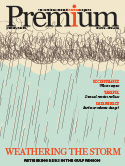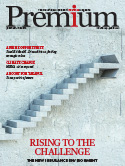Insurers shake up disaster modelling
Insurers are aiming to transform the way in which natural disasters are modelled with a groundbreaking system of their own as the industry tries to scale back reliance on outside specialists that critics warn exert undue influence on premiums.
The new venture, which 22 insurance groups including Allianz, Zurich and the Lloyd’s of London market have clubbed together to set up, is due to be launched soon. The project, which has backing from other institutions including technology group IBM, the UK’s Meteorological Office and Columbia University in New York, is the latest sign of the industry’s determination to better understand its exposure to costly disasters.
Catastrophes including floods three years ago in Thailand that cost insurers more than USD15 billion, proved more costly than the industry projected, partly because they were inadequately modelled. Companies including AIR Worldwide, Eqecat and RMS have carved out a lucrative niche selling models to insurers, which use them to help price their policies.
They combine disciplines ranging from actuarial science to geology and analyse complex data to estimate losses arising from hypothetical disasters.
Examples include assessing the maximum damage to infrastructure from a hurricane by simulating various projected strengths and paths.
At its forthcoming launch in London, backers are likely to say the new system will complement existing systems. Privately, however, people involved say that it ultimately should help insurers, which spend millions of pounds a year on models, cut costs.





































